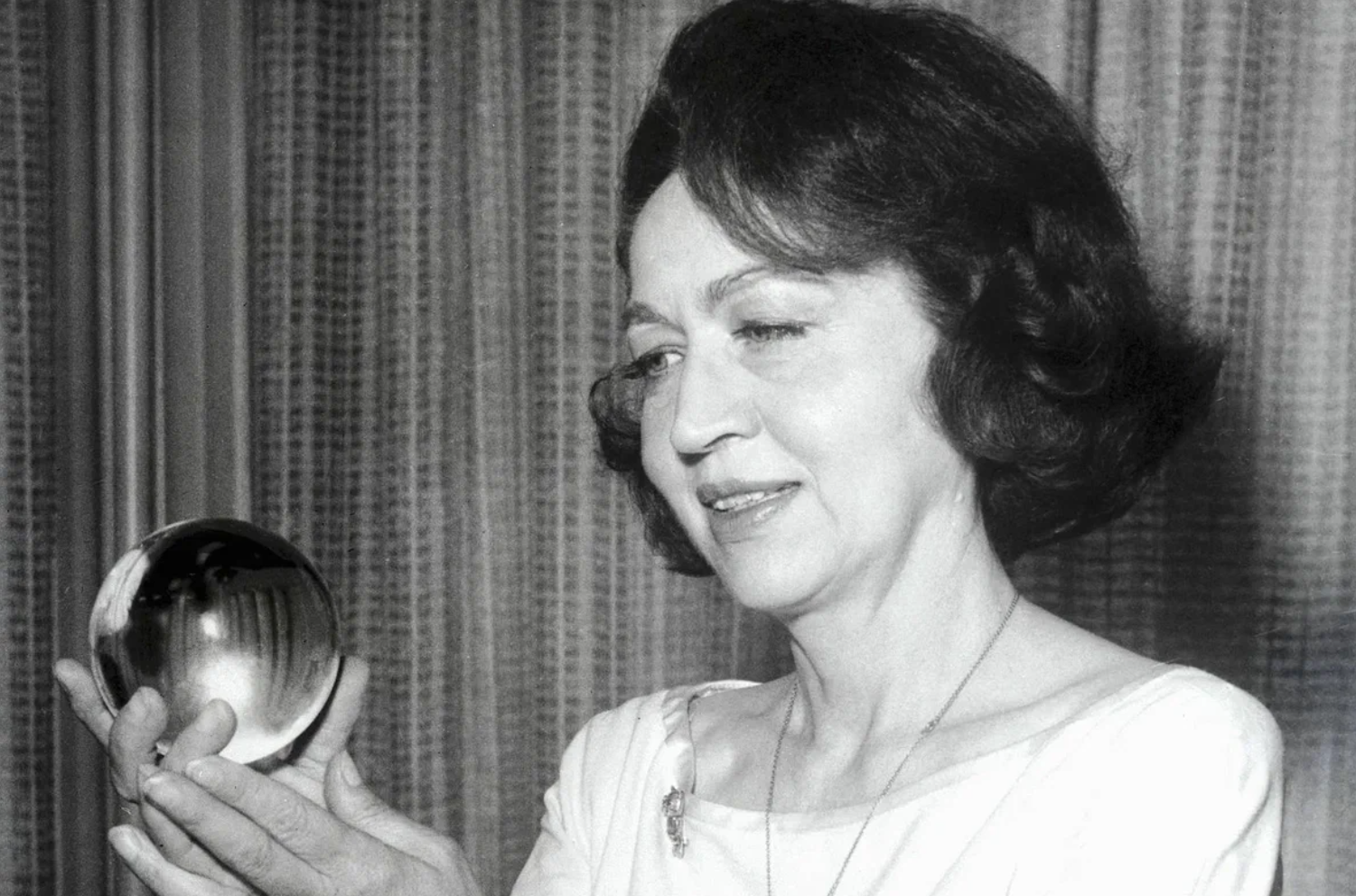
Jeane Dixon is probably one of the most famous psychics of her time. She is known mostly for her prediction that President John F. Kennedy would die in office, which was true when he was assassinated in Dallas Texas.
Dixon died on January 25, 1997, and is someone that is so famous that she won’t be forgotten by people that know anything about the psychic world.
Predictions
Dixon predicted that a democratic president that was elected in 1960, would be someone that had blue eyes, brown hair and would be tall. She went on to predict that he would die while he was in the office. Dixon was interviewed by reporters over this prediction, and she had told the reporters at the time that she thought that the president that she saw would be assassinated but that was never printed in the papers.
Who Was Jeane Dixon?
Jeane Dixon was a psychic reader to many different people including celebrities such as:
- Ronald Reagan.
- Nancy Reagan.
Nancy Reagan was even interviewed often for her use of psychics and astrologers that she would talk to in order to set the schedule for Ronald Reagan. Dixon was one of the psychics that she relied on the most until she decided that Dixon had lost her powers and she chose her rival, Joan Quigley, to guide her instead.
Author and Writings
Dixon wrote seven different books including:
- A horoscope book for dogs.
- An astrological cookbook.
- Many books on psychic gifts.
- An autobiography.
She was known for her ESP and was important in Washington. After JFK was killed, Dixon became very popular and Ruth Montgomery who was a write wrote a book called, “A Gift of Prophecy: the Phenomenal Jeane Dixon.” This book was popular and there were more than 3 million copies that were sold.
Dixon became known and then eventually started her own horoscope column and it was printed in papers all over the world.
Was She Popular?
Even though Dixon was popular, many people hated her. They would report her predictions and talk about how fake that she was. Some believed that none of her predictions ever came true. She was always under the radar and tabloids and others all over the country attacked her for her gifts.
John Allen Paulos, a mathematician, made a phrase called the “Jeane Dixon Effect,” where people praise a psychic for getting a couple predictions right, but they forget all the ones that they got wrong.
Even though not all of Dixon’s predictions came true, she did predict that the World War 3 would start in 1958 in a China and that Walter Reuther would run for president in 1964. She predicted that Russia would be the first to send a man to the moon.
Final Words
Dixon wasn’t always accurate in her predictions, but she is still considered to be one of the most known and famous psychics in history.



Ultimately, Jeane Dixon’s legacy prompts reflection on what we seek from psychics—guidance, validation, or simply entertainment?
‘Many people hated her’ indicates a polarization surrounding figures like Dixon. This invites an exploration into why certain public personas evoke strong reactions.
Polarization often reflects deeper societal anxieties about knowledge and prediction, particularly regarding political figures.
It’s fascinating how she could be both celebrated and vilified simultaneously; it shows the complexity of public opinion.
The phenomenon surrounding Dixon raises interesting questions about belief in psychic abilities and the psychological factors at play when people engage with such figures.
Dixon’s life and career reflect a broader cultural fascination with the supernatural. It’s worth considering how societal events shape our interest in psychics.
Indeed, the context of her predictions during turbulent times adds layers to our understanding of her influence.
While cultural fascination is understandable, one must critically assess the validity of such predictions versus their entertainment value.
Dixon’s reliance on her gifts for guiding influential figures raises ethical questions about responsibility among psychics and their impact on decision-making.
Jeane Dixon’s predictions certainly sparked much debate during her lifetime and continue to do so. It’s intriguing how public perception can fluctuate based on a few high-profile successes or failures.
‘The Jeane Dixon Effect’ is an interesting concept that reflects human psychology regarding memory and selective reinforcement in evaluating psychic claims.
‘A horoscope book for dogs’ is an intriguing concept, highlighting how far the commercialization of astrology can go. It invites further discussion on consumerism in spirituality.